15th to 24th March, 2021
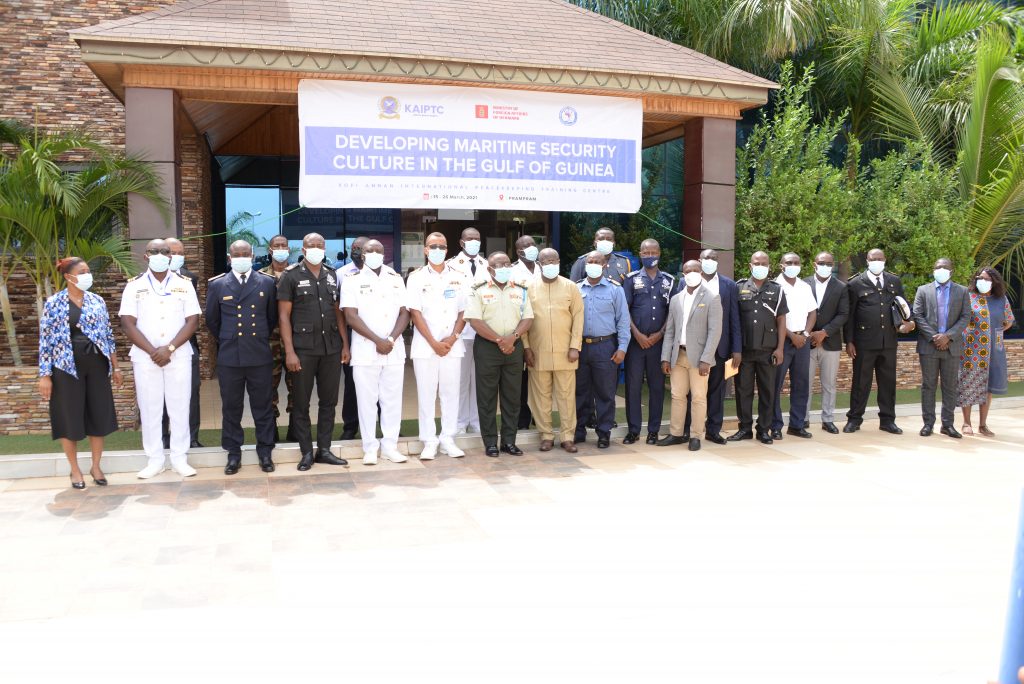
Group photograph 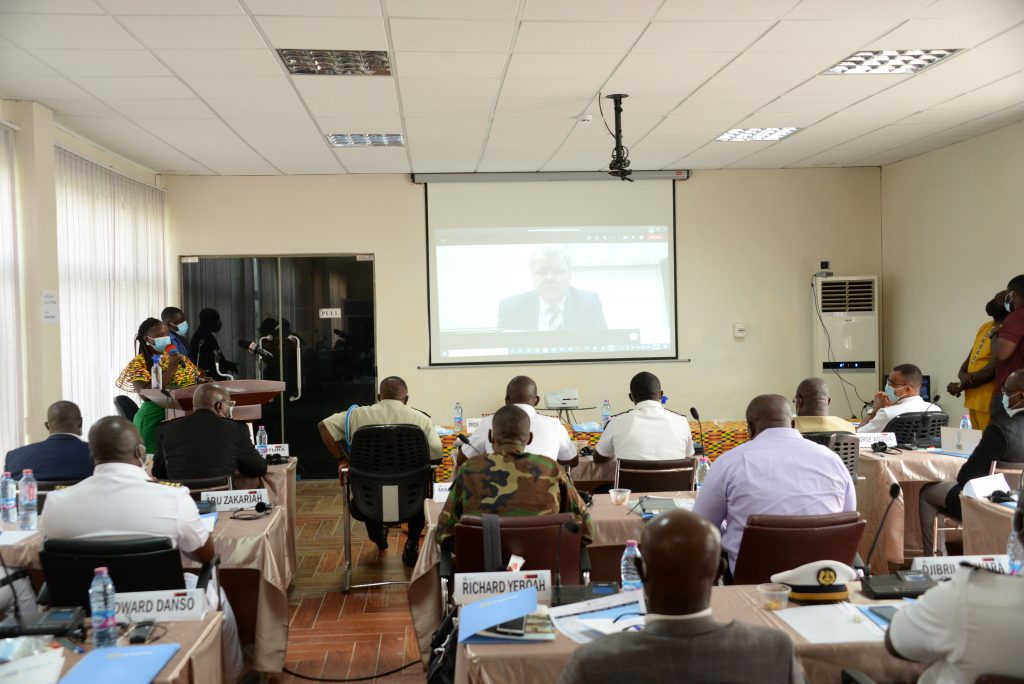
Keynote speech by the Danish Ambassador to Ghana, His Excellency Tom Norring 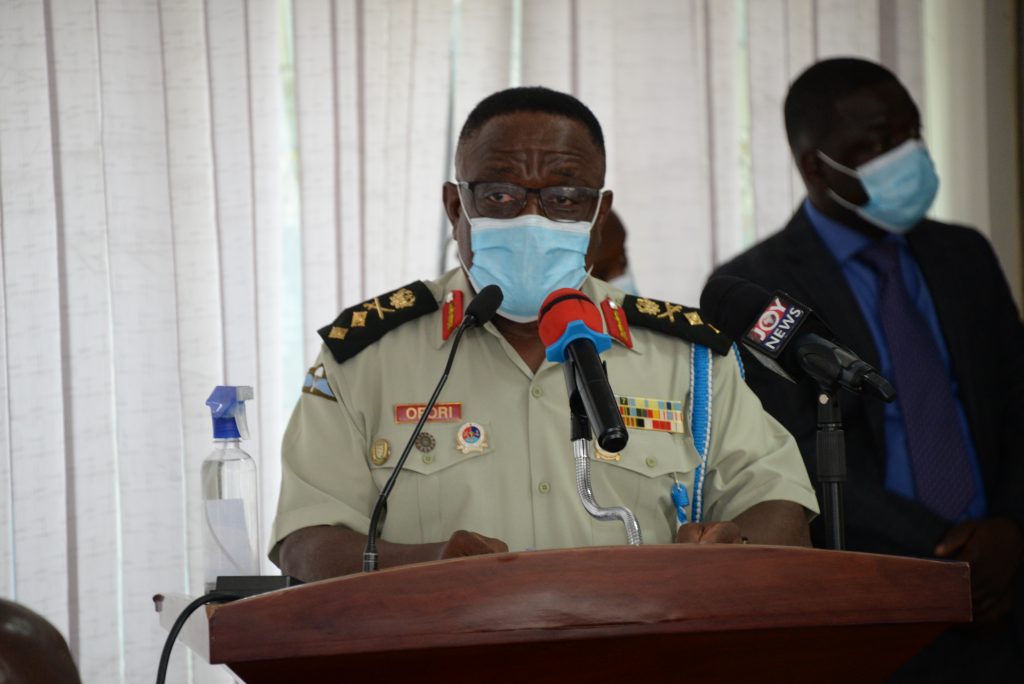
Opening Remarks by Major General Francis Ofori, the Commandant of the KAIPTC 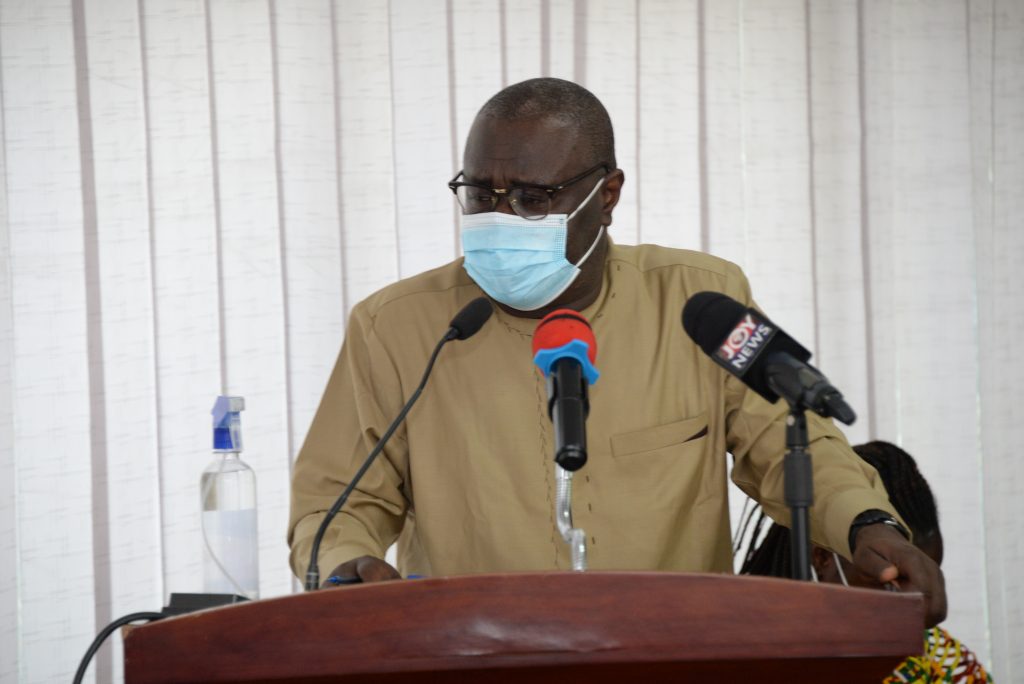
Welcome Remarks by Prof. Kwesi Aning, the Director of the Faculty of Academic Affairs and Research of the KAIPTC 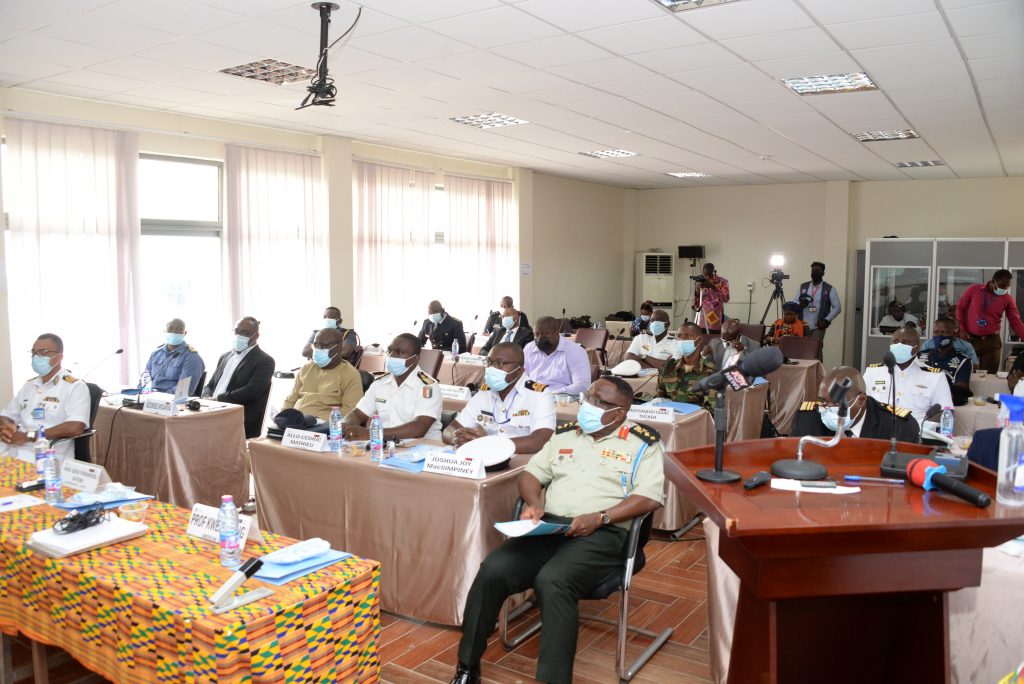
Cross-section of participants during the opening ceremony 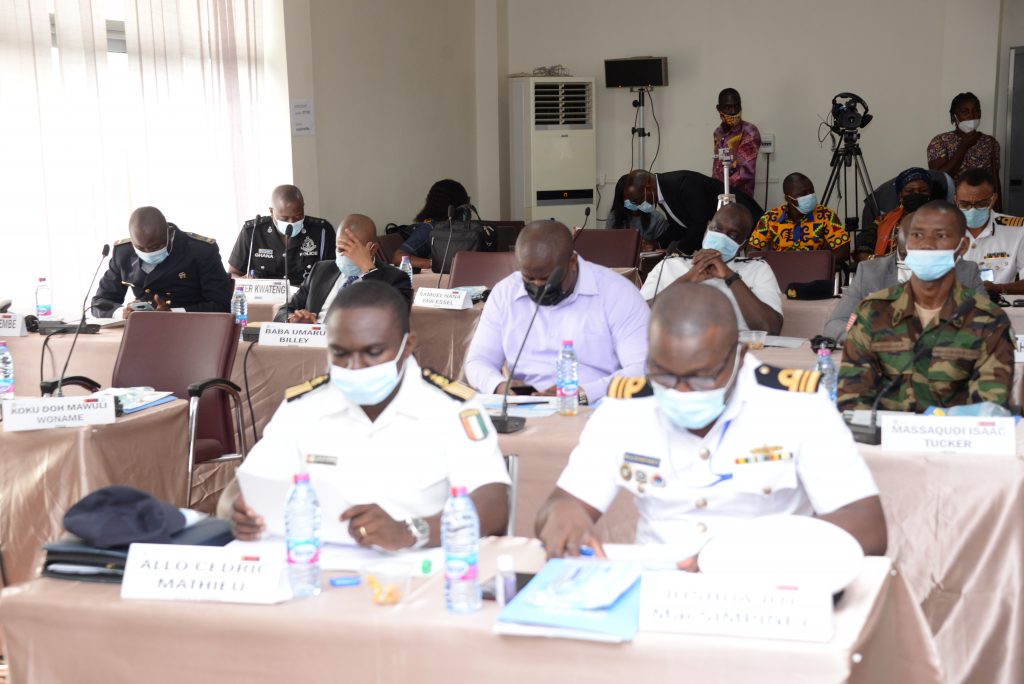
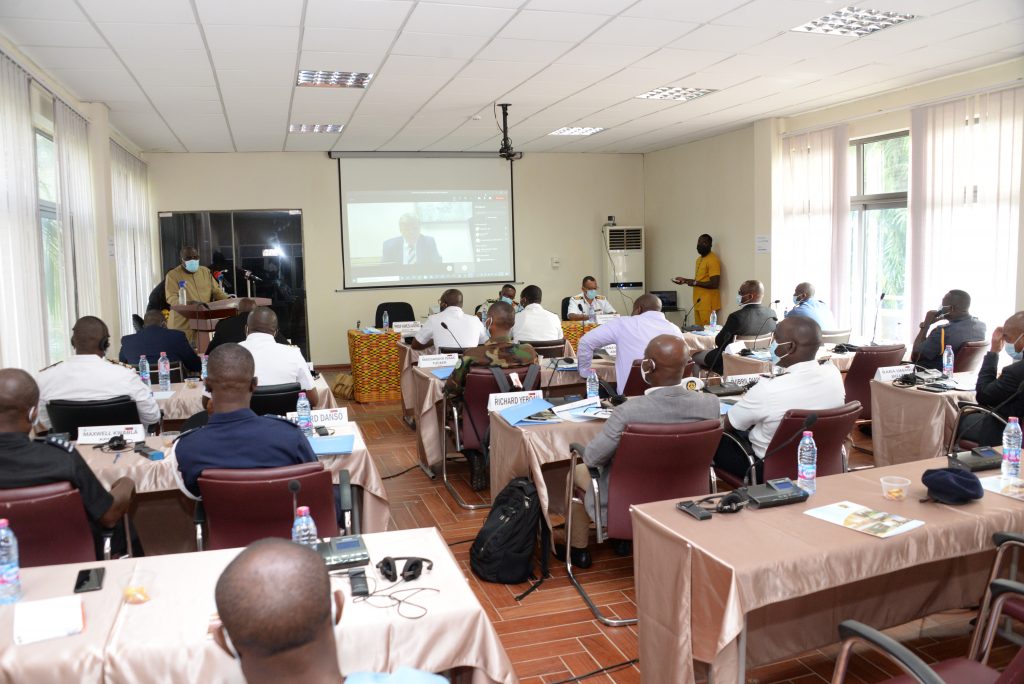
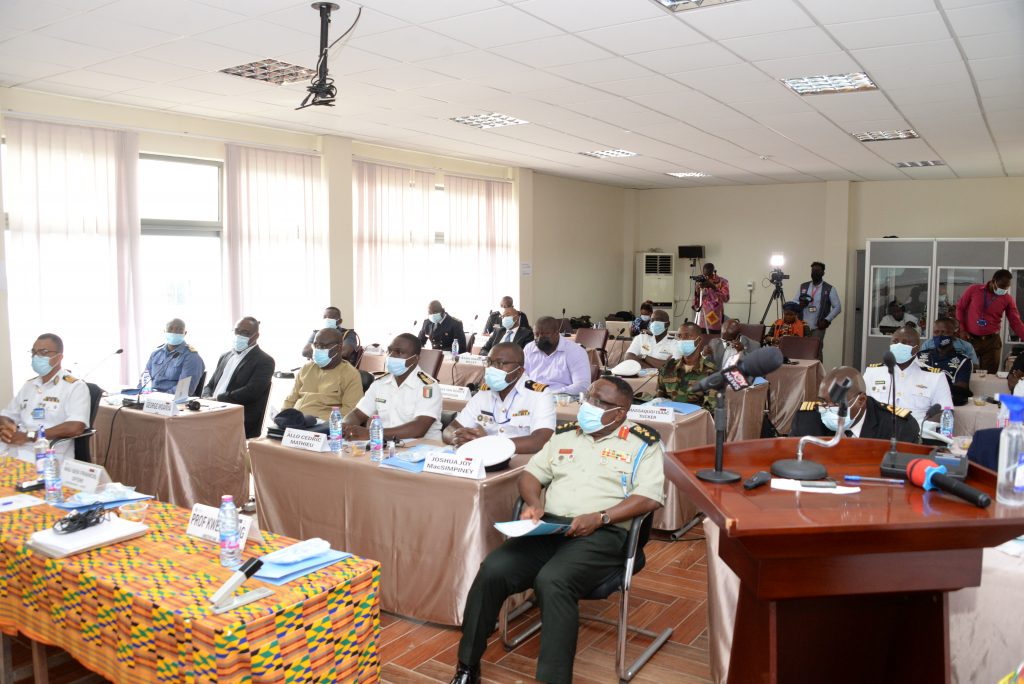
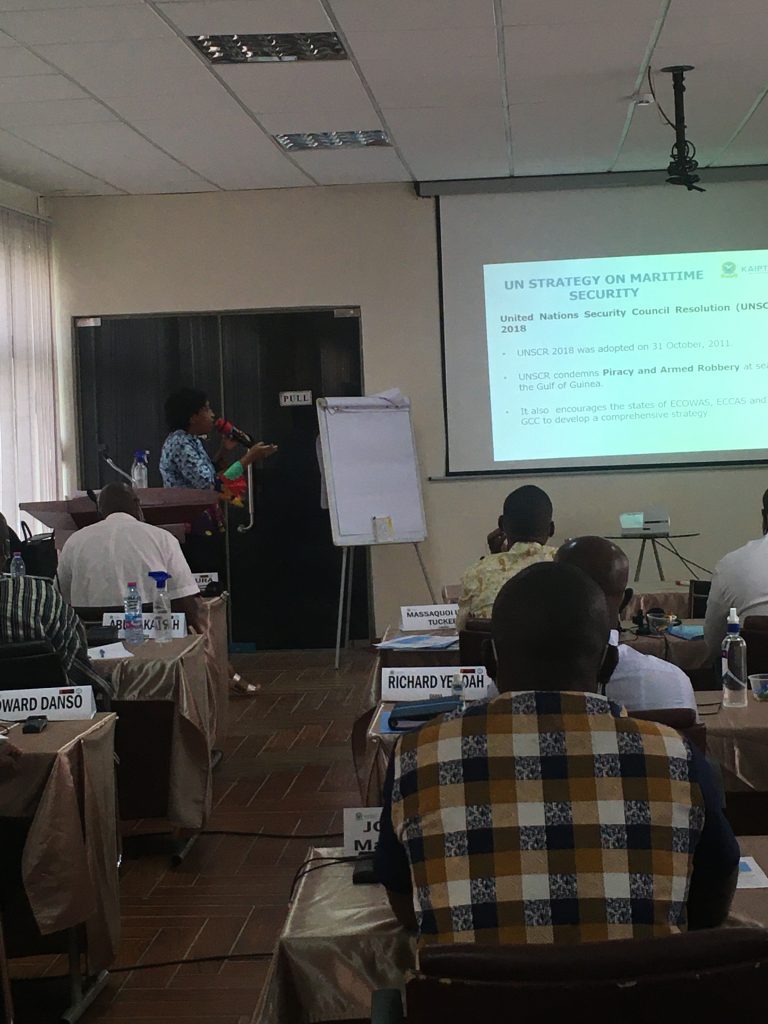
Presentation on the module: Legal and Policy framework on Maritime Security 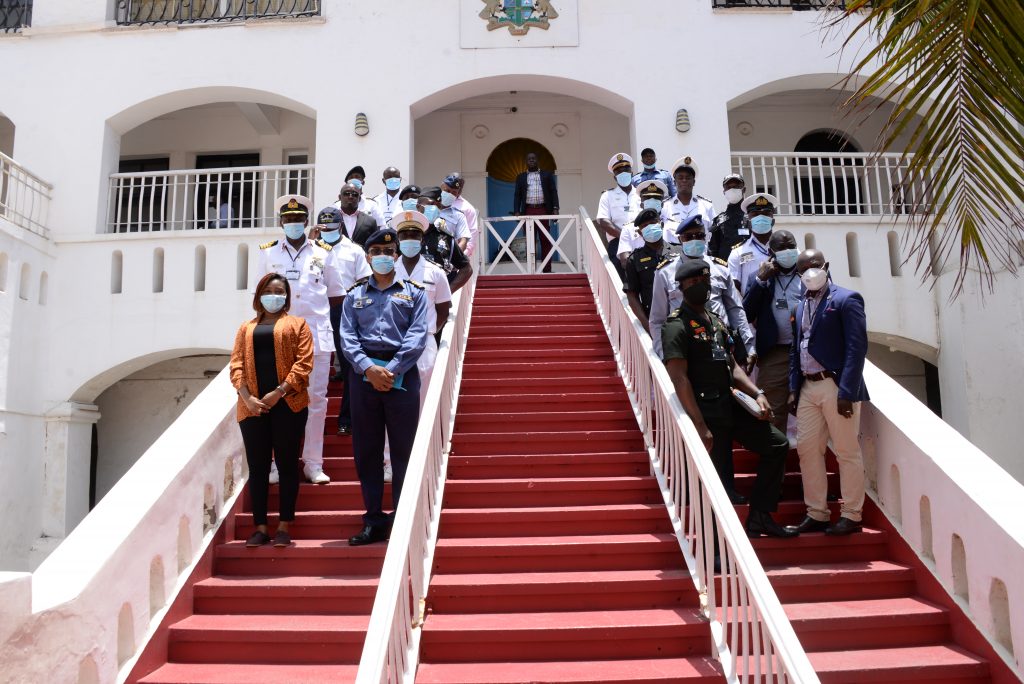
Group photograph-Visit to MMCC Zone F 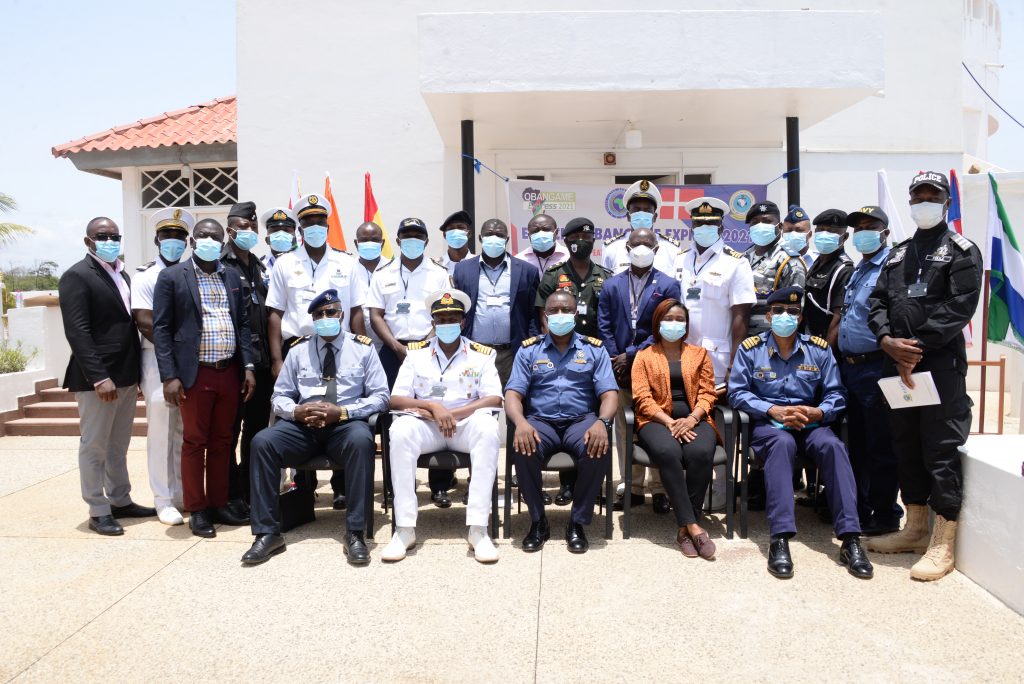
Group photograph-Visit to MMCC Zone F 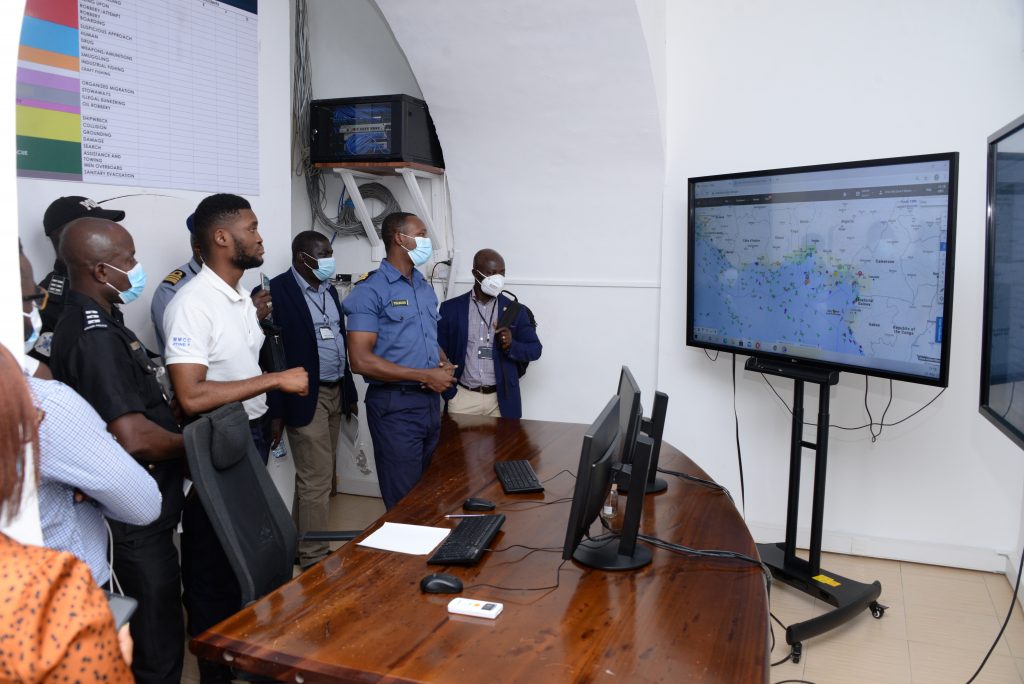
Visit to MMCC Zone F 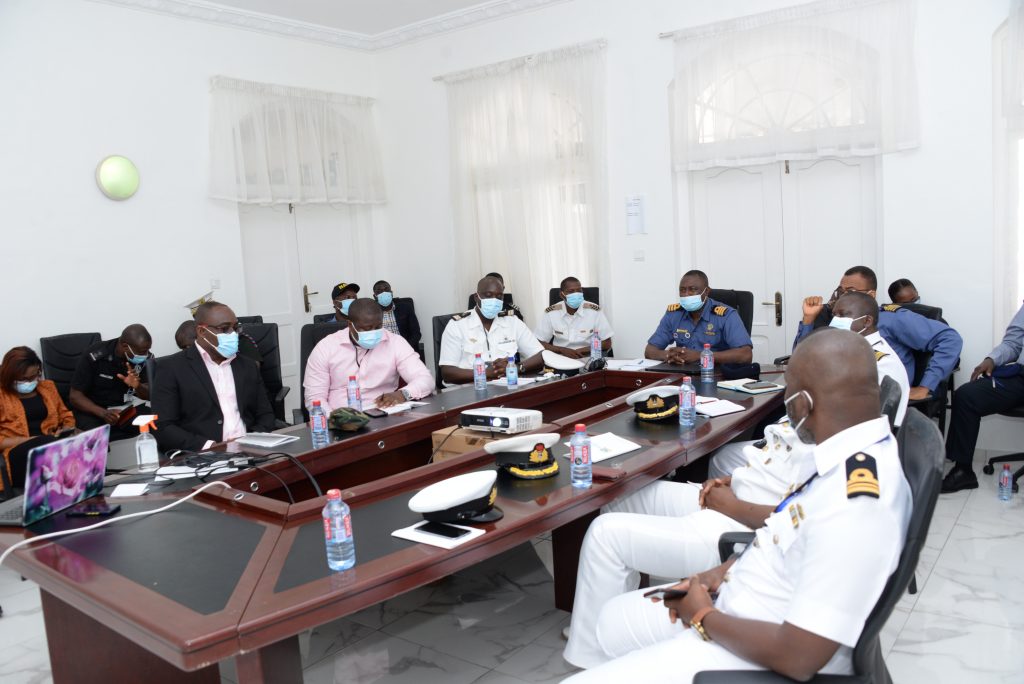
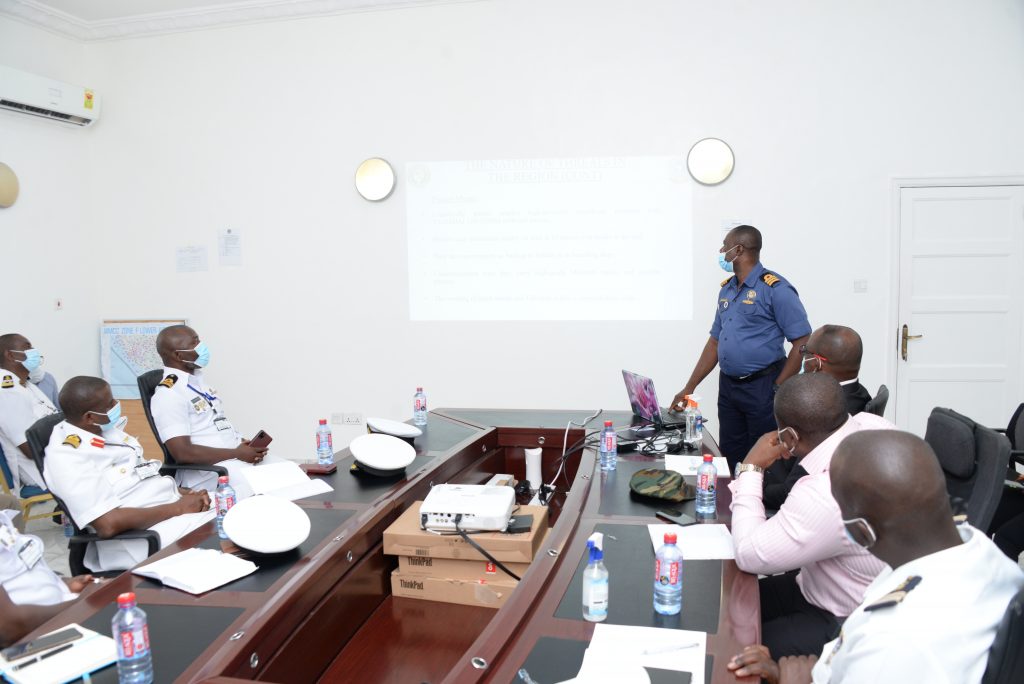
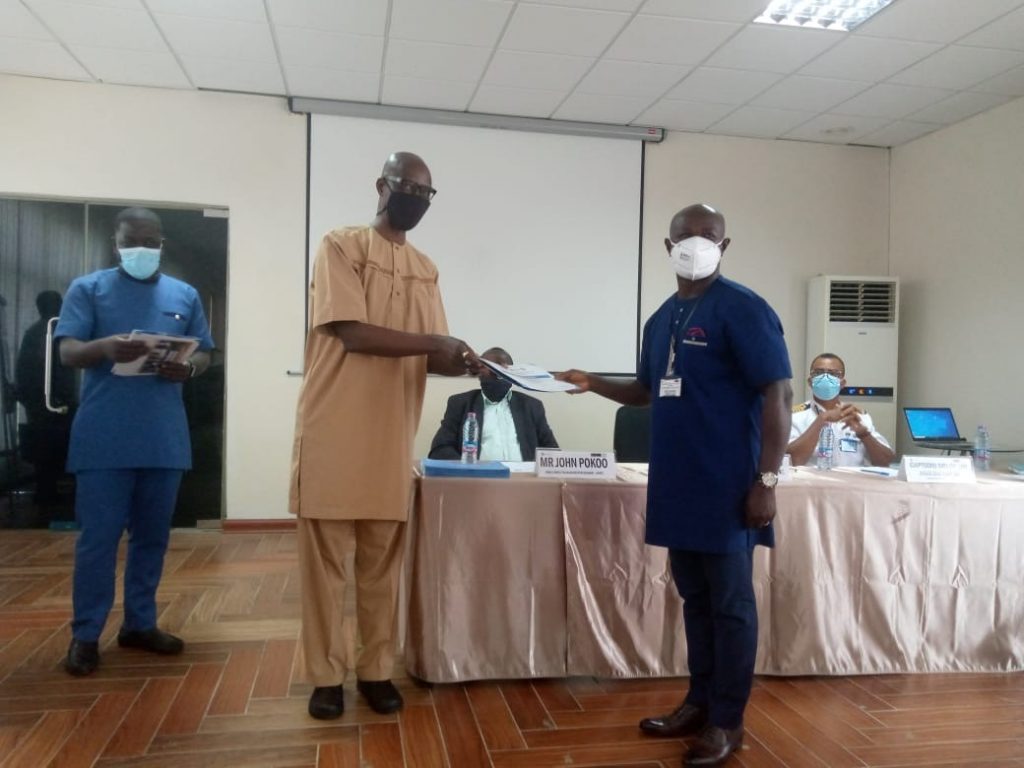
Presentation of certificate by Dean of Academic Affairs to a participant from Fisheries Commission,Ghana 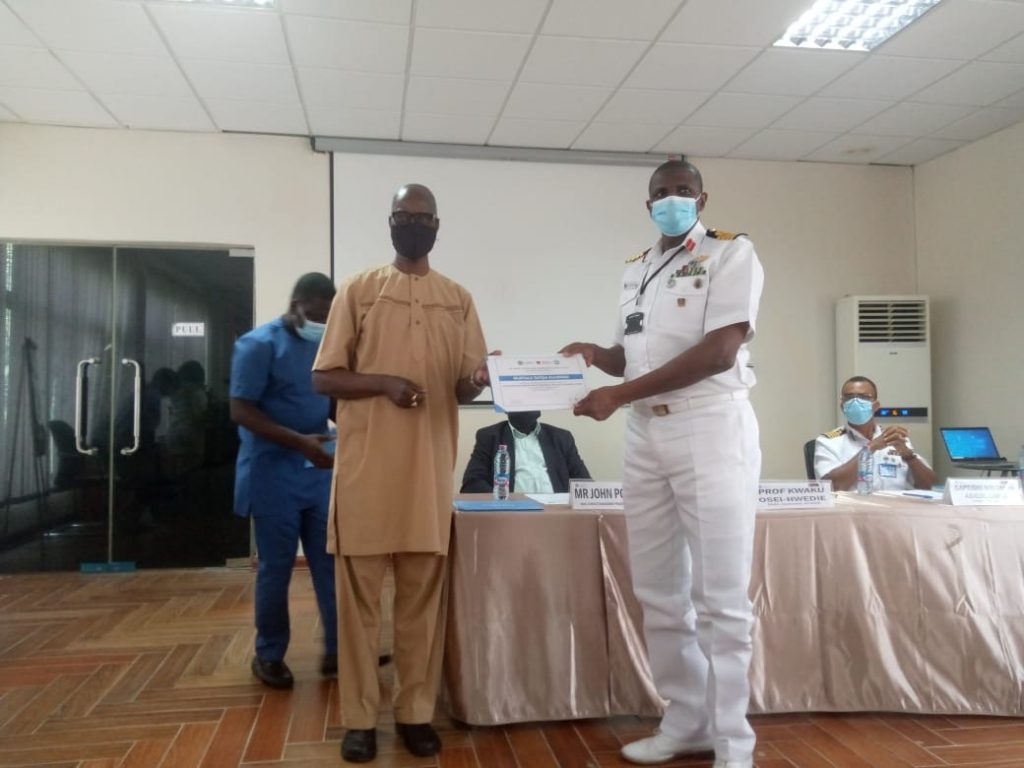
Presentation of certificate by Dean of Academic Affairs to a participant from the Nigerian Navy 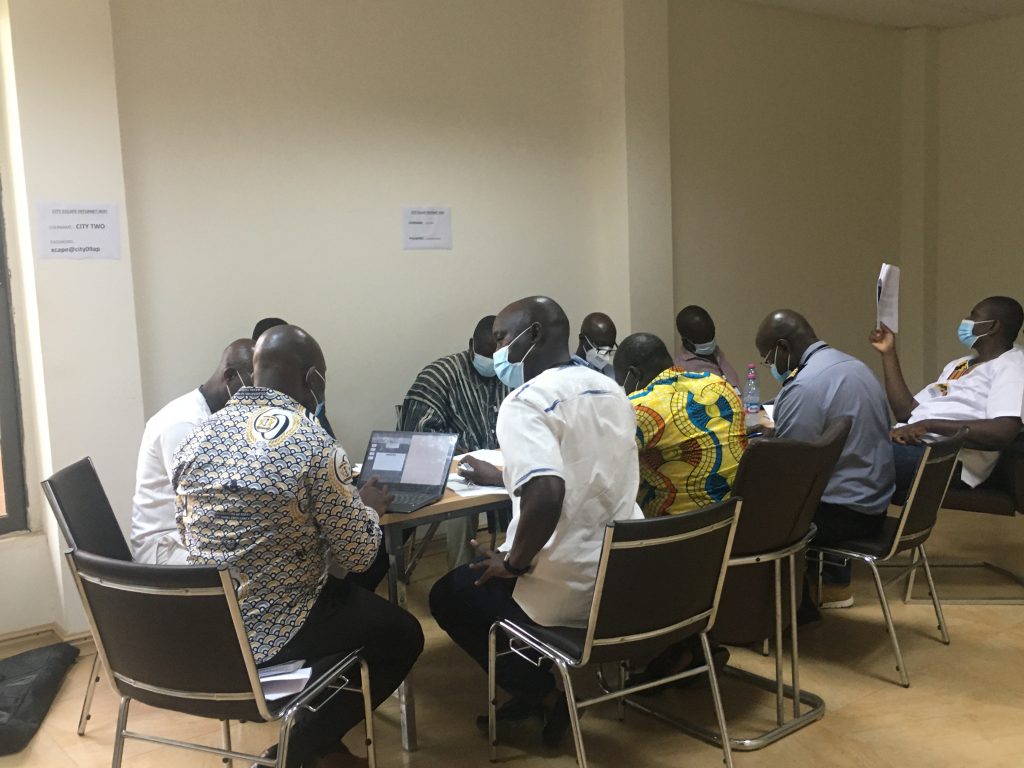
Group discussion 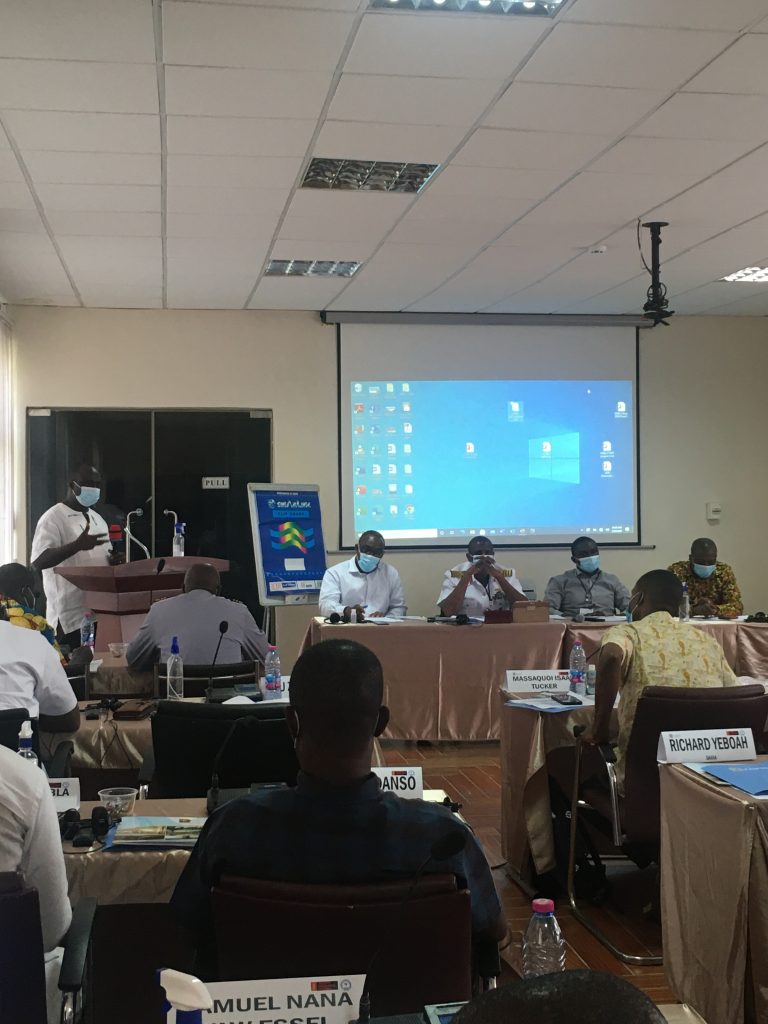
Panel Discussion
The Developing Maritime Security Culture in the Gulf of Guinea (GoG) course organized at the City Escape Hotel in Prampram, from the 15th to 24th March, 2021 constituted the third training under the capacity building component of the “Enhancing regional research, capacity building and convening of stakeholders towards a safer maritime domain in the Gulf of Guinea Project” funded by the Government of Denmark.
The course was aimed at guiding participants to develop a shared knowledge and harmonized approach in dealing with insecurities in the GoG through information sharing, collaboration, cooperation and coordination. The 21 maritime security actors who participated in the course were drawn from 10 countries in the GoG[1] from diverse institutions including, the Navy, Ports and Harbours Authorities, Marine Police and Commercial Shipping Companies among others.
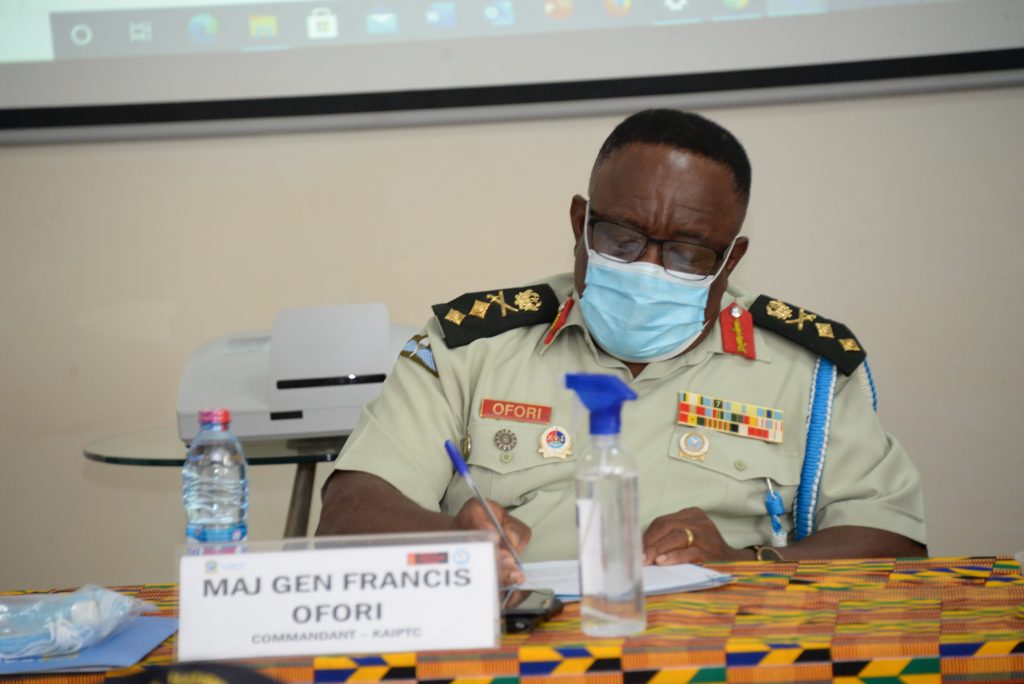
In his opening remarks, Major General Francis Ofori, the Commandant of the Kofi Annan International Peacekeeping Training Centre revealed that increasingly, states have realized the importance of collaborating and coordinating their efforts in securing their shared maritime space which has resulted in the development of Standard Operating Procedure’s (SOPs) and Memorandum of Understanding (MOUs) being drawn up at different levels to define and manage engagements. Highlighting the spiraling piracy attacks reflected in the 2020 statistics on maritime crimes in the GoG, he stated “this is clearly a worrying trend that can only be resolved through increased and shared intelligence, information exchange, coordination between vessels, and among reporting and response agencies in the GoG region. In this sense, having a shared maritime security culture means that maritime actors understand and appreciate the dynamics of maritime insecurity, whiles working to reduce maritime criminality at sea.”
In this sense, having a shared maritime security culture means that maritime actors understand and appreciate the dynamics of maritime insecurity, whiles working to reduce maritime criminality at sea.”
The Danish Ambassador to Ghana, His Excellency Tom Norring in his keynote address further stated that ensuring enhanced maritime security in the GoG is key to enhancing economic growth for the region, as the vast majority of trade is carried out by sea. He talked about the investments being made in harbours and infrastructure by West African countries including Nigeria, Benin, Togo, Ghana and Côte d’Ivoire with ambitious goals of increasing capacity of sea-borne trade within the next 5-10 years which is necessary to support the rapidly growing West African markets. Based on the above background, he stated that a safe environment and the freedom of navigation through the GoG is fundamental to ensure these ambitious goals bring further prosperity to the region. He therefore entreated the participants to share their experiences during class discussions and stated that he was confident, that the knowledge acquired during the training will greatly impact initiatives aimed at enhancing maritime security in the GoG.
Prof. Kwesi Aning, the Director of the Faculty of Academic Affairs and Research of the KAIPTC, gave a statistical analysis of threats recorded over the years in the GoG region, emphasizing the fact that, the course was indeed timely as the intended and unintended impact of activities of criminal maritime syndicates has strained security and consistently drained the blue economy of the GoG maritime domain. He noted that the only effective way to address and curb these threats was through “a collective response approach”. He therefore advised the participants to share their experiences and use innovative means to implement the knowledge they will acquire from the training.
During the 8-day training, participants were taken through the modules by a cross section of experienced facilitators from the navy, the marine police and the academia. The presentations sought to imbue participants with knowledge and understanding of maritime insecurities in the GoG, diverse maritime security threat response in the GoG, gaps in GoG maritime security architecture, legal and policy frameworks on maritime security and maritime intelligence, information sharing and management among others.
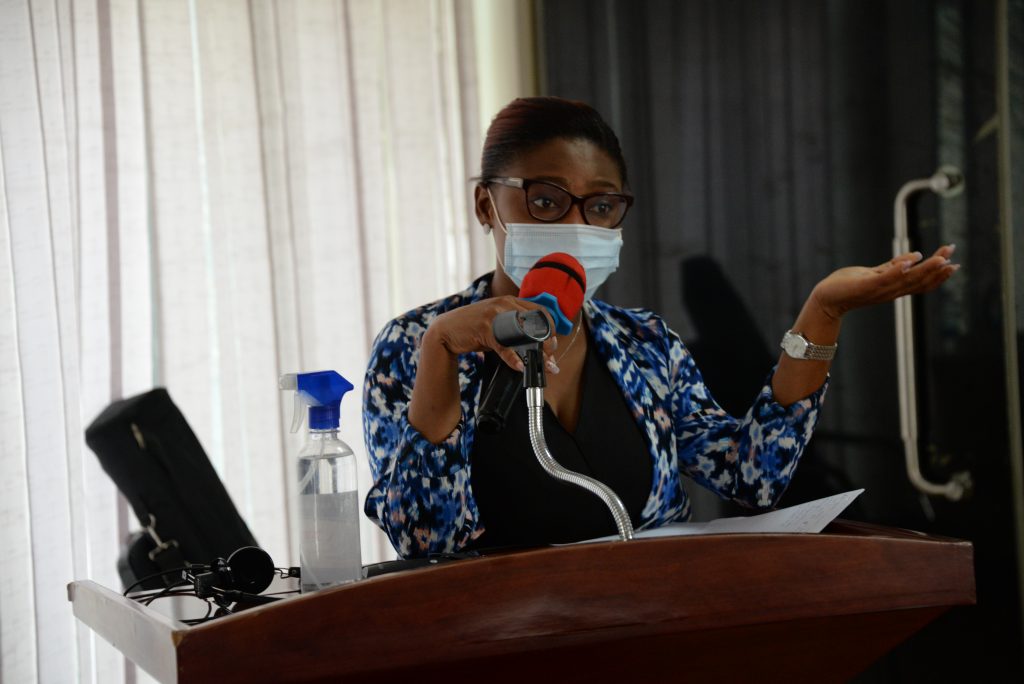
The modules were not only theory based but had practical exercises where participants were divided into groups and made presentations after each of the sessions. As part of the practical sessions of the course, participants visited the Multinational Maritime Coordination Centre (MMCC) Zone F at the Osu, Christiansborg Castle. The purpose of the visit was for participants to familiarize themselves with the role of the Centre, challenges it faces as well as it’s surveillance capacities. The course also included a session for panel discussion where panelist made presentations on emerging and existing issues in the GoG maritime security domain. The topics for the panel discussion focused on the opportunities and challenges with the deployment of Danish Naval Warship to the GoG, Inter-agency collaboration and coordination at both the regional and national level, collaboration and cooperation between commercial vessel companies and maritime authorities as well as cooperation between law enforcement agencies, non-state actors and coastal communities in intelligence and information sharing. The session presented opportunity for participants to seek clarity on subjects related to the topics which were discussed.
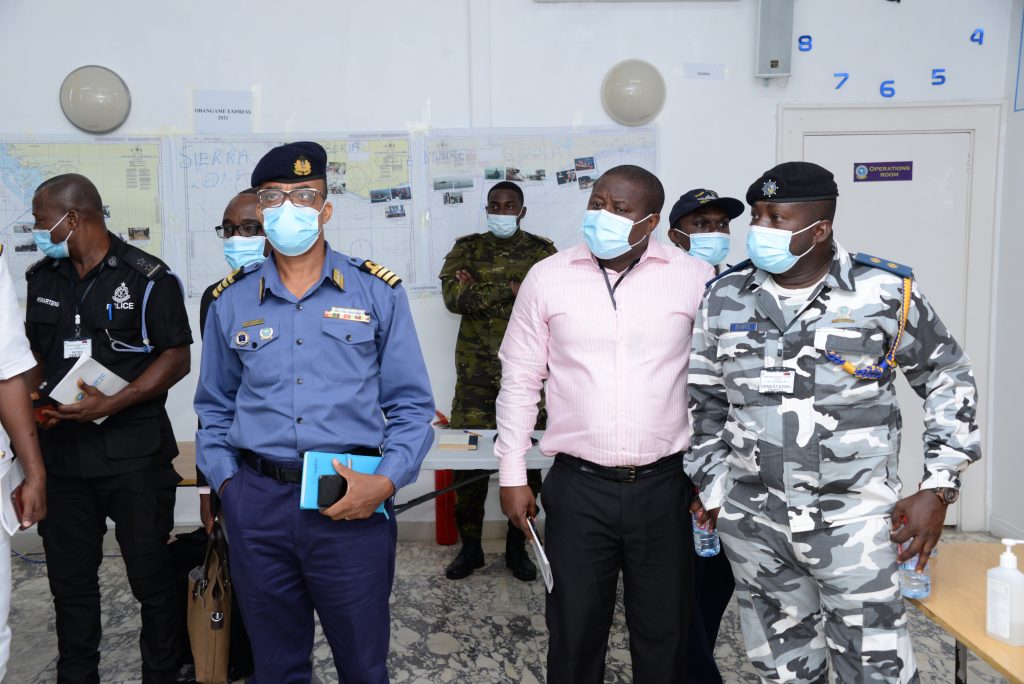
At the end of the course, participants received their certificates of participation from the Dean of Academic Affairs, Prof Kwaku Osei-Hwedie. In his closing remarks Prof.Osei- Hwedie stated that “in view of the worsening situations of instability around the region, being a maritime security practitioner at this moment comes with exceptional responsibilities. We need to keep our jurisdiction safe from the chaos that surround us and as beneficiaries of this specially designed course, we are confident that this training will help transform the way you work and the nature of your professional relationships” With the knowledge acquired from the course, participants are expected to contribute to national, zonal and regional efforts aimed at implementing the Yaoundé Code of Conduct
Reflections from Participants
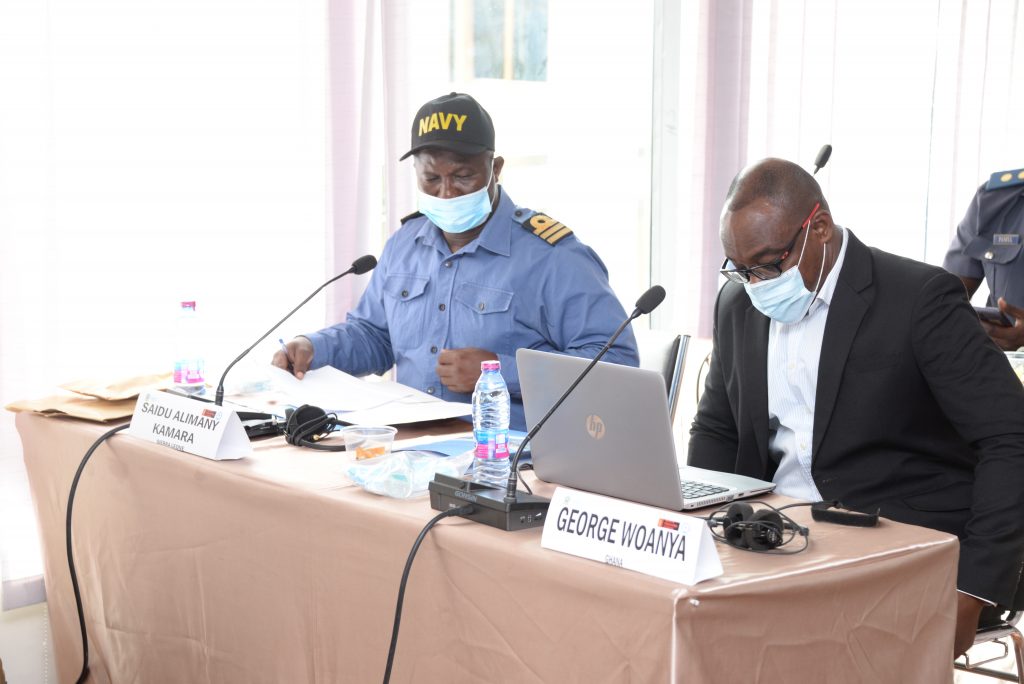
“I have learnt a lot from the programme and I believe that the Air Force has a major role in providing Air Power for Maritime Security in the Gulf of Guinea. As a Squadron Commander equipped with this knowledge, I will enlighten my squadron pilots on Maritime Security in the Gulf of Guinea and come out with some SOPs on Maritime Patrols so that we would be tactically ready any time we are called upon to act”. – Air Force Officer, Ghana
“We have Naval Training School and I will ensure that the modules are integrated into the school syllabus. I will also request my Commander to organize similar course in future involving maritime stakeholders within the country”. – Naval Officer, Sierra Leone
[1] These countries are Cameroon, Cote D’Ivoire, Ghana, Togo, Nigeria, Sierra Leone, Guinea Bissau, The Republic of Congo , Liberia and Senegal.

